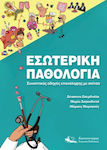from Goldenbooks
Selected Store
Stock 20+ pieces
Set the delivery location to see products according to your choice.

from Goldenbooks
Selected Store
Stock 20+ pieces

Scientific Books


Scientific Books


Scientific Books





Scientific Books


Prices are calculated for:Luxembourg, Other Payment Options
We live in a world that seeks happiness at all costs. Being happy has become not only a life goal for many of us but also a right and obligation, another version of the American dream – indeed, who would ever claim that they want to be and remain unhappy? As an aid in achieving this desirable goal, in the late 1990s, a new science emerged: Positive Psychology, with its doctors, self-proclaimed scientists, and gurus, who are by your side to teach you how to be happy. With their gentle but strict help, you will learn how to overcome negative and unproductive emotions, developing joy and positivity instead. And if you fail... you cannot fail. You are not allowed to fail, you are doomed to succeed for your own good. But if you do fail, you alone will bear the fault or responsibility, having shown a lack of will or diligence – and certainly not society. But isn't this a new trick aimed at convincing us, once again, that wealth and poverty, success and failure, health and illness are solely our responsibility? And doesn't the so-called science of happiness extend the field of consumption into our inner world, turning emotions into common commodities? In this book, Edgar Cabanas and Eva Illouz trace the origins of this new "science" with lively discourse and explore the implications of one of the most troubling phenomena of the early 21st century. Edgar Cabanas was born in 1985 in Madrid. He studied psychology at the Autonomous University of Madrid, where he was awarded a doctorate in 2013. A postdoctoral researcher at the Max Planck Institute in Berlin (2014-2016), he is now a professor at the School of Social and Educational Sciences at Camilo José University in Madrid and an associate researcher at the Max Planck Institute in Berlin. *** Eva Illouz was born in 1961 in Fez, Morocco. She moved to France at the age of ten. She studied sociology and literature at the University of Paris X (Nanterre), media at the Hebrew University of Jerusalem, and cultural studies and media at the University of Pennsylvania (Annenberg School), where she was awarded a doctorate. She is a professor of sociology at the Hebrew University of Jerusalem and a director of studies (professor) at the École des Hautes Études en Sciences Sociales (EHESS) in Paris. She was the first woman elected president of the Bezalel Academy of Art and Design. Following the tradition of the Frankfurt School, her research interests focus on the critique of "emotional capitalism" and the ways in which capitalism transforms emotional patterns into products and consumer goods. Eva Illouz regularly writes for the newspapers Ha’aretz, Le Monde, and Die Zeit. Her books available in Greek include: Cold Intimacies: The Making of Emotional Capitalism (Oposito, 2017) and Why Love Hurts (Editions of the Twenty-First Century, 2019). *** Eva Illouz and Edgar Cabanas strike against the dictatorship of happiness with lively discourse.
This is a constructive, highly topical, and important book that helps us understand the influence of a new, global ideology that serves power. Marie Lemonnier, L’Obs In her latest book, the sociologist denounces the command directed at us to be happy. This ideology, whose executive instrument is Positive Psychology, has only one purpose: to blame individuals and strengthen neoliberalism. Once again, the author wishes "to put Sociology where Psychology dominates." Virginie Bloch-Lainé, Libération A unique book [...] that highlights the unresolved contradiction, the impasse, of the current individualistic society. Nowadays, if Socrates were to walk into the market and pose his great questions about the good, the just, what we should strive for, he would see someone arriving to propose that he become a personal development coach at Google. Raphaël Glucksmann, France Inter Sociologist Eva Illouz and psychologist Edgar Cabanas, astute observers of the exploitation of our innermost feelings by capitalism, reveal how happiness has become a particularly lucrative market and an ideology that is fascinating but also distorted. Catherine Portevin, PhiloMag A fair critique of the tyranny of a model of artificial happiness, stripped of any social context. Jean-Marie Durand, Les Inrocks We cultivate it, theorize it, and turn it into an object of business exploitation, writing books and delivering lessons about it. It is the new fuel of productivity. On a social and work level, happiness has emerged as a new order. Nicolas Santolaria, Le MondeSpecifications are collected from official manufacturer websites. Please verify the specifications before proceeding with your final purchase. If you notice any problem you can report it here.
Extremely useful tool for deconstructing and overcoming toxic positivity. A scourge of today...